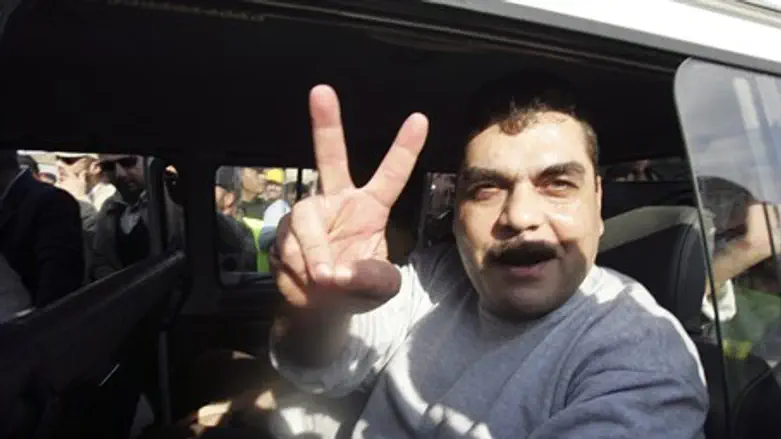
The elimination of Hezbollah commander Samir Kuntar in an alleged Israeli airstrike has been hailed by Israelis from across the political spectrum and from Sunni Syrian Rebels Sunday as a positive step.
Professor Moshe Maoz from the department of Islamic and Middle Eastern studies of Hebrew University in Jerusalem spoke to Arutz Sheva with regards to the political implications of Kuntar’s elimination.
“The big question that of course Hezbollah needs to ask right now is whether to respond or not,” said Maoz. “However, that is not the biggest question that Israel needs to ask. Israel needs to determine where it stands with regards to the Iranian vision of establishing a pan-Shiite crescent across Iraq and Syria, and it needs to ask how to best deal with Russia and their presence in Syria.”
According to Maoz, Israel’s seeming success at eliminating Kuntar so close to Damascus without any response from the Russian air force signifies that in all likelihood the cooperation between Russia and Israel with regards to aerial interests in the region is working.
Moreover, it also signifies that with certain restrictions, Russia will allow Israel to pursue their own interests with regards to striking out against terrorist targets in Syria - even if those targets are affiliated with Russia's Syrian allies.
However, Maoz said that the line will likely be drawn at any attempt by Israel to actively engage in aiding the overthrow of Bashar Assad’s regime, which Russia is supporting.
One of Assad’s other allies is of course Iran, which is hoping to create a Shiite crescent of control throughout the war torn region from Iran to the Mediterranean.
“This more so than the fight against ISIS should be Israel’s long-term concern in the area. Israel needs to support the less extreme Sunni rebels, obviously surreptitiously, in an effort to combat these designs,” said Maoz.
Maoz was aware that not everyone in the Israeli defense establishment agrees with his assessment. “There are those who feel that ISIS is the biggest threat, but I believe that ISIS will pass, and that we may be left with a wide area of influence or control by Iran in the long run, and that is a much bigger problem.”
Hezbollah is Iran's chief proxy, and any weakening of the terror organization that controls much of Israel’s northern border in Lebanon would also constitute a weakening of Iran’s hold on the area, and a victory for the Sunni rebels. And while Israel likely won’t actively do anything against Russian interests in the area, there is, apparently, nothing preventing them from acting against Iranian and Hezbollah interests, and in favor of its own.
Maoz, however took it one step further and said that Israel should take passive actions against Assad wherever possible. “Beyond our long-term political interests, we have a moral interest in ousting Assad. The man killed 300,000 of his own people and caused 11,000,000 people to become refugees. How can we stand idly by as this travesty to the human condition continues?” he argued.
As Israel is not in a political position to take active action against Assad, and with Israel-Turkish relations warming, Maoz suggests that Israel should do everything they can to support the more moderate Sunni states and groups who are taking part in the fight in a cloak and dagger style, in an effort to show modern Sunni states that Israel is siding with them.
Steps such as providing medical aid to the wounded of Sunni rebels and striking at Hezbollah commanders are good steps in that direction.
